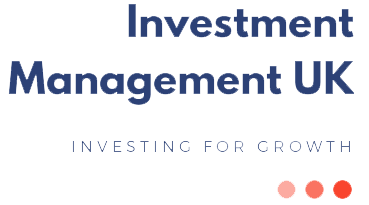
Investment Asset Management – What is it?
In accounting and business terms, an Asset is defined as anything owned by an individual or a company, whether in possession or by the right of possession. The value of assets can be expressed in monetary terms and can be used to generate cash when required. Investment Asset Management refers to the process of professionally managing assets like financial securities, real estate, equities, etc, for companies and individuals.
The financial industry is fast-growing, dynamic and competitive. Companies and individuals alike, seek professional advice on investments, to meet their predetermined financial goals. Investment Asset Management services help investors cope with the volatility of financial markets, and changes in the regulatory requirements. It also helps investors deal with complex financial products. Investment Asset Management professionals focus on the proper and timely management of investor assets, following maintenance, tracking and disposal of assets. Competent Investment Asset Management services help avoid risk of losing assets. In businesses especially, efficient Investment Asset Management can increase sales and maximise financial assets.
Types of Assets
For many years after its rise, the concept of Investment Asset Management was restricted to the UK stock markets. As one of the most thriving industries today, Investment Asset Management enjoys a wide spectrum and is the driving force of economy across the globe.
Assets can be divided into two broad categories:
- Tangible Assets
- Intangible Assets
Tangible Assets
Assets with a physical existence, typically real estate (commercial / residential), equipment, building, etc. Tangible assets can be divided into two sub-classes:
Current Assets – Assets in the form of cash or those which can be converted into cash; usually consumable within a particular operating cycle, or a year. Current assets include:
- Short term securities or investments bought for sale on short-term price movements and primarily for income generation.
- Long-term investments acquired in the form of land, bonds, funds, stocks and long-term notes.
- Cash and cash equivalents like deposit accounts, currency, cheques, money orders, bank drafts.
- Stock of goods or inventory of a company.
- The amount of money receivable by an asset holder in exchange for services and goods provided by it.
- Pre-paid operating costs for products or services purchased for future use.
Fixed Assets
Also called PPEs (property, plant and equipment), fixed assets are purchased for long-term use and solely for the purpose of generating profits. These assets include land, building, machinery, tools, furniture, etc.
Intangible Assets
These assets are difficult to evaluate as they have no physical existence. Easily purchased and sold at a fair price, intangible assets include:
- Patents or exclusive rights granted for a specific timeframe to individuals for their unique discovery or invention.
- Copyrights or legal, exclusive rights granted to owners of intellectual properties, prohibiting the use of intellectual properties by others without permission from owners.
- Trademark, which is a company’s distinguishing attribute, by which it is readily identified.
- Trade names or names that businesses trade under (brand name). These names are often different from the registered or legal names of the companies.
- Goodwill: The current price on net asset value (NAV) of a company will differ from its fair market price. Goodwill is the difference between these two prices.
What does Investment Asset Management involve?
The process of Investment Asset Management involves the following:
Setting up of investment objectives:
Investment goals and financial objectives will differ depending on who invests and the purpose behind the investment. Investments can be made by financial institutions, and also by private investors focused on generating high returns on investments. The financial goals of an individual will be different from that of insurance companies, banks, mutual and pension funds, etc. Investment Asset Management services help set investment objectives depending on investor decisions.
Formulating investment plans:
Investment Asset Management involves the formulating of investment plans following setting of investment objectives. An asset manager is appointed to draw investment plans based on factors like risk profile and financial capacity of investors, and also market and economic conditions, and in line with Government regulations.
Establishing the portfolio strategy:
Investment Asset Management involves weighing the objectives and constraints and classifying asset classes accordingly. Asset classes include financial securities (fixed income, foreign), debts, equities, currencies, and/or real estate (commercial, residential). An asset manager will guide investors through the selection of assets for investment from the asset classes.
Measuring and evaluating performance:
Investment Asset Management is an ongoing process that requires consistent evaluation and improvement of investment portfolios.
Investment Asset Management – Role of the Asset Manager
Most individuals making asset investments aim to secure their future. Investment Asset Management is a highly specialised field of investment management that requires a well thought-out investment strategy, market research, and carefully drawn investment plans for maximum benefit.
- Qualified, experienced and competent asset managers are a boon to asset investing. The process of professional Investment Asset Management involves:
- Understanding of the investment needs of individuals and availability of funds, analysing status of finance, and assisting in asset selection.
- Allocation of assets by evaluating the risk, growth potential and results of each of the four main types of assets: bonds, stocks, commodities and real estate.
- Discerning the best strategy for investments; involves market research of financial trends and estimate of asset growth.
- Monitoring investments on an ongoing basis.
- Helping to gain maximum benefits from investments.
- Providing advice on investment areas.
- Handling investor decisions and investments with the utmost discretion.
Investment Asset Management does not guarantee returns on investments. Asset managers are primarily focused on minimising risks and frauds towards an asset investment.
